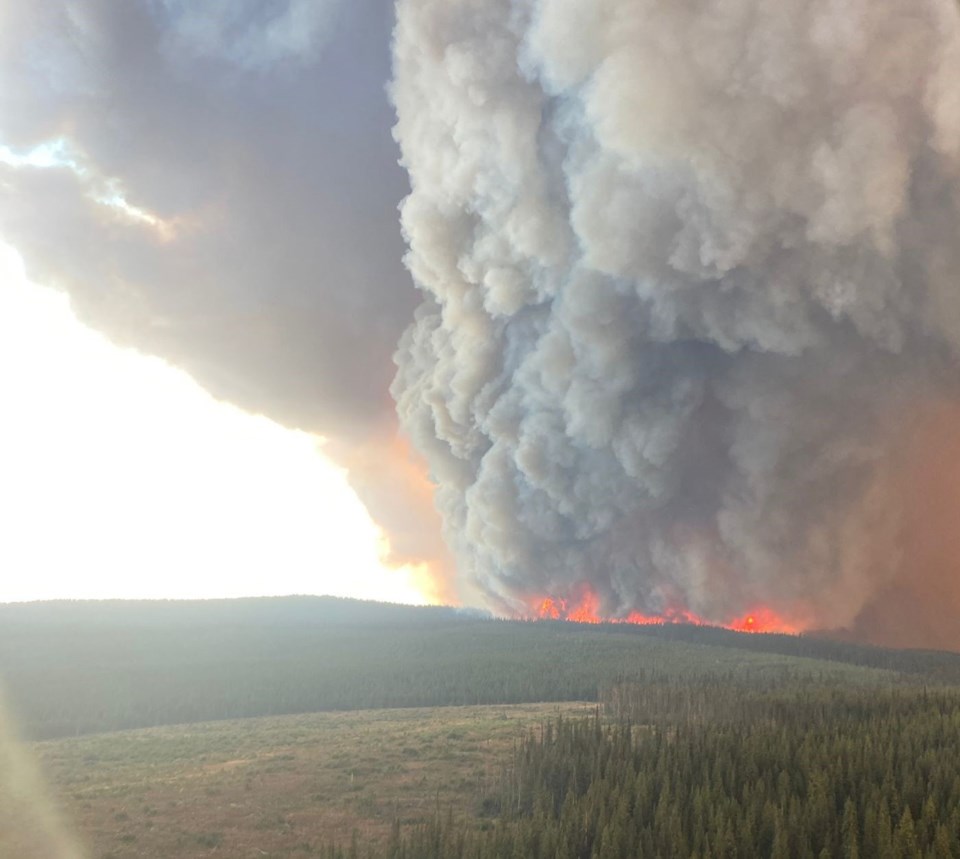VANCOUVER — An expert with the BC Wildfire Service says relentless drought conditions for much of British Columbia sets the stage for more fire activity this fall.
Neal McLoughlin, superintendent of predictive services, says "aggressive fire behaviour" is ongoing in northern B.C., and wildfires there are expected to remain active possibly into next spring.
He says slightly warmer and drier-than-normal conditions are expected across most of B.C. until the middle of October, with the exception of the northwest and coastal regions, which are forecast to get cooler and wetter weather.
McLoughlin says that while the amount of new lightning-caused wildfires is expected to decrease in the coming weeks, dry forests and grasslands remain a concern because they are highly susceptible to ignition.
Noting that 90 per cent of lightning starts generally happen before September, he is reminding people to stay vigilant as the majority of blazes this fall will be human-caused.
The service reports 74 per cent of the nearly 1,600 fire starts this year were caused by lightning, while 25 per cent were set off by humans.
McLoughlin says B.C. has averaged about 250,000 lightning strikes a year for the last two decades but there were 190,000 this year.
"Although we've seen less lightning this year, more of it has translated into lightning-caused fire," he told a news conference Thursday. "The fuels are more receptive, and there's a higher efficiency of lightning and causing fires in those areas."
McLoughlin says this fire season is ranked fourth for most area burned in the province's history, adding that multiyear drought conditions will continue across B.C., most notably in the northeast and Bulkley Lakes regions.
Forests Minister Bruce Ralston told the news conference that more than 200 wildfires are still burning across B.C. That includes the human-caused Kikomun wildfire near Baynes Lake that forced evacuation orders and alerts for more than 50 properties earlier this week, he noted.
"Because of this swift response, the evacuation order has now been rescinded and the fire is now listed as under control," he said of the actions of BC Wildfire Service crews.
Bowinn Ma, B.C.'s emergency management minister, says no B.C. residents remain under evacuation alert or order, and there are also no properties under evacuation order.
She says about 130 properties are on an evacuation alert, but those are not believed to be primary residences.
This report by The Canadian Press was first published Sept. 12, 2024.
The Canadian Press




